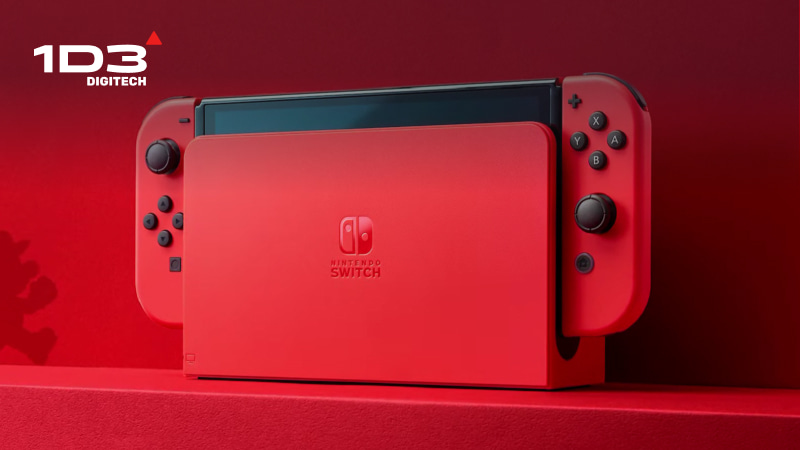Clash of Clans, Marvel Strike Force, Game of Thrones: Conquest – all of those mobile hits have an external webshop now. Responding to the Apple vs Epic case, publishers are looking for ways to create income streams that are not subject to 15-30% commissions charged by stores like Google Play and App Store.
As the trend is catching up, we took a deep dive into platform fees and other costs related to videogame distribution in an interview with 1D3 DIGITECH business development manager Jevgenijs Oblakovs.
Q: What aspects should the developer/publisher consider when choosing an acquiring partner?
A: The main aspects are service commissions, processing fees, the number of available payment methods and country coverage. The developer should also decide whether to delegate VAT/GST payment and remittance to the acquiring partner or keep this process in-house.Additional services also play an essential role. Does the acquiring partner offer help with the promotion of your product? Does it have the tools and competencies to assist with advertising or influencer marketing? Those auxiliary services make the difference between 1D3 DIGITECH and generic payment service providers. You will get a more profound and specialised service with us, often tailored for your business needs.
Q: What are the costs related to distributing digital content?
A: So imagine you sold in-game currency for 100 EUR. The distribution costs consist of Value Added Tax, which stands at about 20% in Europe and payment processing fee, which could be around 2-4% depending on the payment method. After all the deductions, the developer keeps about 76-78 EUR.However, if the game is sold on Steam or the likes of Google Play, the developer must pay the store a 15-30% commission in addition to the Value Added Tax.
Q: VAT on digital content. What are the rates applied, and in which jurisdictions?
A: For digital content, like in-game purchases, the end-users country of residence VAT rate applies. For example, if the user purchased from Ireland, you have to pay the Irish VAT rate to Irish tax authorities. It may get complicated when you work with international audiences, but we are here to help.
Q: How critical is it to calculate and pay VAT? Can this moment be ignored?
A: Taxes are something you should never ignore. We see a pronounced trend — most countries introduce clear legislative frameworks to regulate the industry. If you don’t want to find your content blocked in a particular country or an entire region, make sure your taxes are in order.
Q. Do marketplaces and shops like Google Play, App Store and Steam pay VAT on the content sold?
A: Yes, marketplaces do calculate and pay VAT for the game developers/publishers. They also add their own commission of 15-30% on top, which leaves the developer with about 50% of the revenue generated on the platform.
Q: What are the nuances you should consider when paying VAT?
A: Every country has a threshold for the number of transactions or accumulated payment volume. You must start paying according to the local procedures when you exceed it. This means you must register as a taxpayer, submit all the necessary documents and proceed with the payments.Of course, the tax rates, dates and procedures differ from country to country. Not to mention that the requirements and rates of any particular country may change quite fast, so you have to monitor the local legislation constantly. The most striking example is the USA — rates may vary from state and even within a particular state.
Q: Oh, sounds tough!
A: Exactly! Dealing with taxes is one of the most time-consuming things in our industry. It might be tempting to ignore but keep in mind that the industry is getting increasingly regulated, and tax authorities of different countries are consolidating efforts.
Q: What are the most important trends you see on the market?
A: First, the world has begun to fight against monopolies. This also applies to mobile stores and leading digital content marketplaces. New Microsoft Store policies, the Spotify-Google deal, the Google-Epic case and Netflix sales tactics are the most noticeable manifestations of this trend, and I think we will see more soon.Developers are looking for ways to avoid 30% platform fees. Some choose to use their website as the primary distribution channel offering direct APK downloads or game sales. Others build in-game item stores outside the marketplace infrastructure.No one says those workarounds are a 100% replacement for marketplaces and stores. But not giving away 30% from at least a portion of your income is quite an achievement too. Moreover, players are happy to support their favourite projects, particularly if motivated by in-game bonuses.And do not forget about the legislative initiatives of some countries or even regions - monopolists are forced to provide alternatives for downloads and payments. We can see how the market conditions are changing, which is a good stimulus for the industry.
Q: Which payment methods are the most popular among users?
A: Cards, ApplePay and GooglePay, account for the majority of transactions – these methods continue to be the most popular, accounting for about 60% of the market. They are followed by alternative payment methods, which differ depending on the region.
Q: Some developers are concerned about the integration process. Is it that complicated?
A: This is a common concern, but our clients get a dedicated integration manager and a team of technical experts ready to help with all the issues arising. Most of our clients found the integration process quite intuitive. In general, it can be completed within two to two business days.
Q: Mobile gaming. You can treat it differently, but you can’t argue that it is the leading market segment. What are the specifics?
A: For sure, mobile gaming has captured the whole world. For some people, mobile has even become the first and only platform for gaming. Take Battlegrounds Mobile India as an example. The specifics are in the dynamics of the purchasing process — it has to be as seamless and as native as possible. A mobile SDK is an excellent tool for that. Visit 1D3.com to find out more about it.








